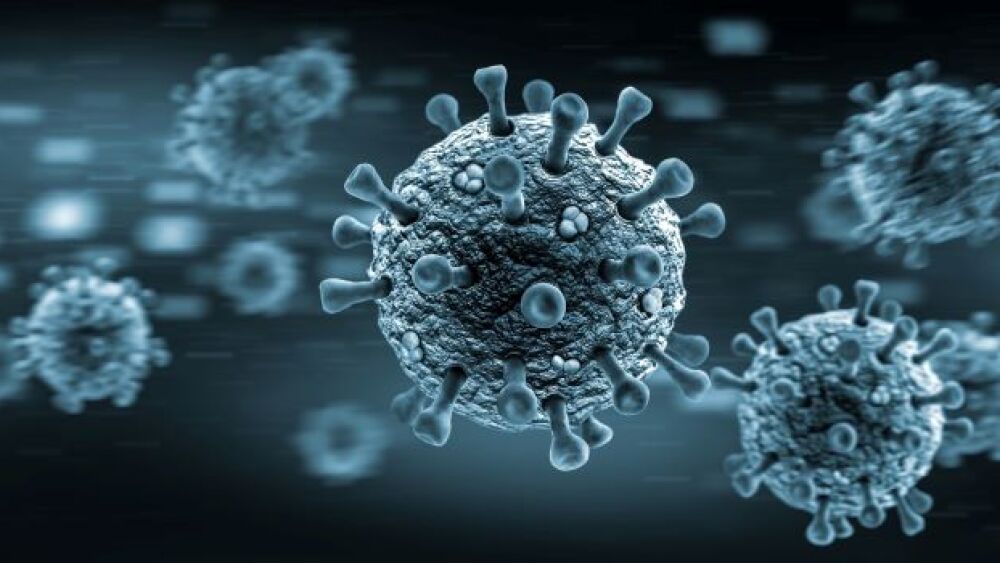The landscape may begin to become clearer as real-time research continues to emerge about the long-term effects of COVID-19 infection.
Long COVID-19: A Variable Dilemma
Dr. Steven Sheris, M.D., is president of the Atlantic Medical Group in Morristown, New Jersey, where his team has developed a concept for how to “co-exist with COVID”, and it includes a COVID recovery center to treat patients and conduct real-time research into the confusing condition.
On a Monday appearance with the American Medical Association (AMA)’s Scott Unger, Sheris outlined his observations of the condition commonly called Long COVID-19, including the variability of the illness.
“I don’t think we saw a real good correlation between really the sickest patients and less sick patients with the acute illness who developed persistent symptoms. What I’m trying to explain is that you can have had a relatively mild illness, but it persisted for weeks and weeks with very specific symptoms or a symptom that was tough to tackle. Likewise, we had people in the ICU, spent a long time in the ICU, make a complete recovery and do very well, said Sheris, who is also an experienced cardiologist.
So, what is the solution to this complex challenge?
Real-Time Studies Defining Brain Fog
The landscape may begin to become clearer as real-time research continues to emerge about the long-term effects of COVID-19 infection. A large study published Tuesday in The Lancet Psychiatry assessed long haul patients within six months of diagnoses for the incidence of 14 neurological and psychiatric conditions including ischemic stroke, psychotic mood, anxiety disorders and substance abuse.
Among the 236,379 post-COVID-19 patients, 1 in 3 were diagnosed with a neuropsychiatric condition within the next six months, most commonly mood disorders, and 12.8% of those were first-time diagnoses of the illness. In fact, compared to the control groups, first-ever diagnoses were nearly twice as high. Potentially more concerning was the fact that these diagnoses included dementia and stroke.
“We need urgent research to better understand how and why does this occur in patients with Covid-19 and how they can be treated and [how to] prevent it. But we think that regardless of the explanation, health services need to be prepared for the increased demand that this data is showing,” said Max Taquet, a clinical fellow in psychiatry at the University of Oxford and co-author of the study.
A smaller study published recently in the Annals of Clinical and Translational Neurology found that a whopping 85% of non-hospitalized long COVID patients experienced at least four lasting neurological issues. This research, conducted by Northwestern Medicine in Chicago, is based on an analysis of 100 COVID-19 long haulers with symptoms persisting at least six weeks.
Vaccines Offer Hope for Long Haulers
Scientists are trying out a new name for these long COVID symptoms, dubbing them “Post-Acute Sequelae of Covid-19”, or PASC, and they may be a little bit closer to understanding the condition suffered by COVID-19 survivors as patients are reporting some relief after receiving their first vaccination.
Survivor Corps, a patient advocacy group started by long-haulers, found that 41% out of 900 people surveyed reported anywhere from slight-to-full recovery after being inoculated.
Yale immunologist Akiko Iwasaki poised two theories. One, the vaccines are helping to clear the “viral reservoir”, or the remnants of the virus in the body.
“That’s probably the most straightforward way. If that’s the case, people will be cured of long COVID and that will be wonderful news,” Iwasaki said.
Less optimistically, Iwasaki said that the shots may be providing temporary relief from an autoimmune response triggered by COVID-19.
Either way, Survivor Corps and Iwasaki, who are in collaboration on a study to analyze the blood samples of long haulers before and after vaccination, have reason to hope.
“I have received numerous emails and DMs on Twitter about patient experiences ... and I’m hearing every day from people who are feeling better from getting the vaccine. From where I stand, it looks encouraging,” Iwasaki shared.
A Video Game Cure for Brain Fog?
Can Akili Interactive Labs treat ADHD and long haul COVID?
After making history last year with EndeavorRx (AKL-T01), which won U.S. Federal Drug Administration (FDA) approval last summer for the treatment of kids with ADHD, the digital medicine and video game developer plans to see if the game can work its magic for long haulers suffering from a symptom known as brain fog.
The company will conduct two randomized remote studies, one by Weill Cornell Medicine and New York-Presbyterian, the other by Vanderbilt University Medical Center, to determine whether AKL-T01 can help to improve cognition for long term COVID-19 patients.
Akili is seeking to prove the value of EndeavorRx in more therapeutic areas.
“The technology that we have at Akili is not very specific to one disease area. It basically improves attention control, which is one of the aspects of cognition, and that is part and parcel of many different disorders,” said Akili chief medical officer, Anil S. Jina.
In a study of 57 patients in rehab after COVID-19 hospitalization conducted by Cornell, preliminary data showed that 81% of patients had some cognitive impairment, with 55% experiencing deficits in working memory, and 46% divided attention.
Jina added that small independent studies have also demonstrated the potential of EndeavorRx in dementia and cognitive impairment.






